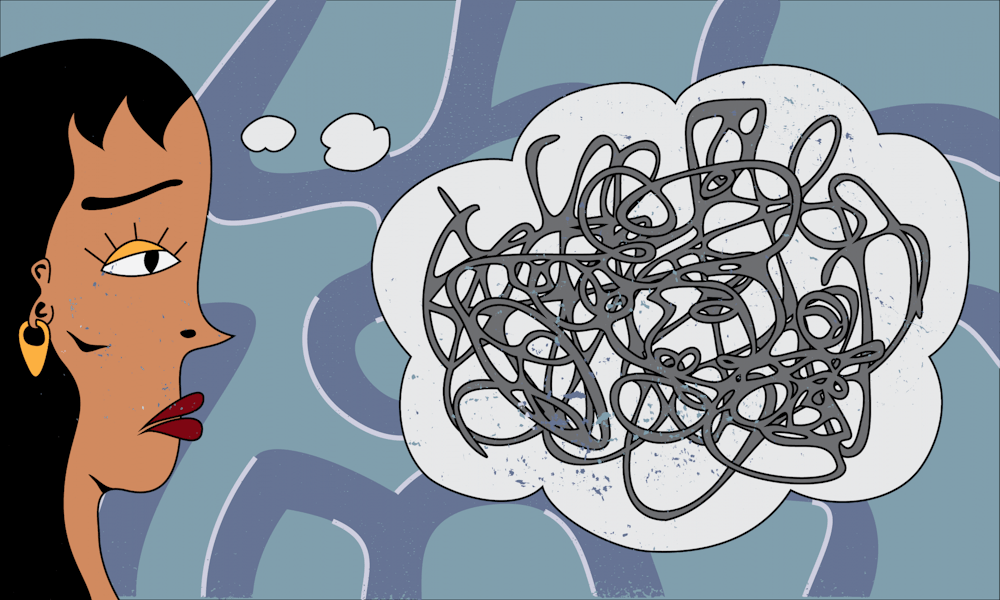The novel coronavirus pandemic has taken an enormous toll on communities worldwide, both physically and mentally. While people are told to practice social distancing and celebrate events together yet apart, many are suffering from newfound or worsening mental health issues as a result. Penn's student population is far from immune to these conditions — nearly one in five college students have reported significant declines in their mental health as the pandemic progresses. The isolation experienced by many students of all backgrounds can lead to depression, post-traumatic stress disorder, and many other challenges.
Penn students are experiencing these obstacles like everyone else, yet even in the best of times, they have faced barriers to receiving adequate mental health care from the University. Frequently, Penn’s mental health stance has been reactive, opting to treat students once problems arise instead of aiming to lessen the possibility of these mental health issues in the first place. In light of the COVID-19 global pandemic and the immense stressors it produces, Penn should adopt a proactive rather than reactive stance towards mental health, increasing available resources for both prevention and treatment.
College students are facing unique stressors at this time. Many worry about protecting their physical health, supporting their families financially, finding jobs during the pandemic, and seeing their beloved friends again. Whether or not students return to on-campus activities in the fall, these economic and health-related stressors will likely remain relevant for a significant amount of time. In this difficult situation, it is particularly important for Penn to support its students by increasing its focus on proactive mental health services.
A proactive stance on mental health would mean Penn takes an active role in de-stigmatizing mental health, rather than relying on students to accomplish this themselves. If all students were involved with Counseling and Psychological Services from the start of their first year, either with routine semesterly check-ins or at the very least an introductory overview during New Student Orientation, the air of mystery and stigma surrounding CAPS would dissipate. If stigma were to disappear, students would be more likely to utilize CAPS services when they need them.
Often, the students who need CAPS’ services the most are the least likely to engage with them, either because they do not know how, because the services are inaccessible to them, or because of communal or familial stigma. Introducing CAPS services to all students would expand their reach and increase the chances that students will use the services in a time of need. Student wellbeing should be the first priority for the University, as mental health matters just as much as academic performance.
The University’s mental health resources have been widely criticized in the past. The current unprecedented situation gives Penn the chance to change its narrative and enact major changes. By strengthening existing systems and increasing available resources during this time apart, Penn will be able to help students live healthier and happier lives for years to come.
Editorials represent the majority view of members of The Daily Pennsylvanian, Inc. Editorial Board, which meets regularly to discuss issues relevant to Penn's campus. Participants in these meetings are not involved in the reporting of articles on related topics.
SEE MORE FROM THE DAILY PENNSYLVANIAN EDITORIAL BOARD:
Completing Penn’s COVID-19 survey can create change on campus
Penn should drop its standardized test requirement for next year’s applicants
SEE MORE FROM THE DAILY PENNSYLVANIAN EDITORIAL BOARD:
Completing Penn’s COVID-19 survey can create change on campus
Penn should drop its standardized test requirement for next year’s applicants









